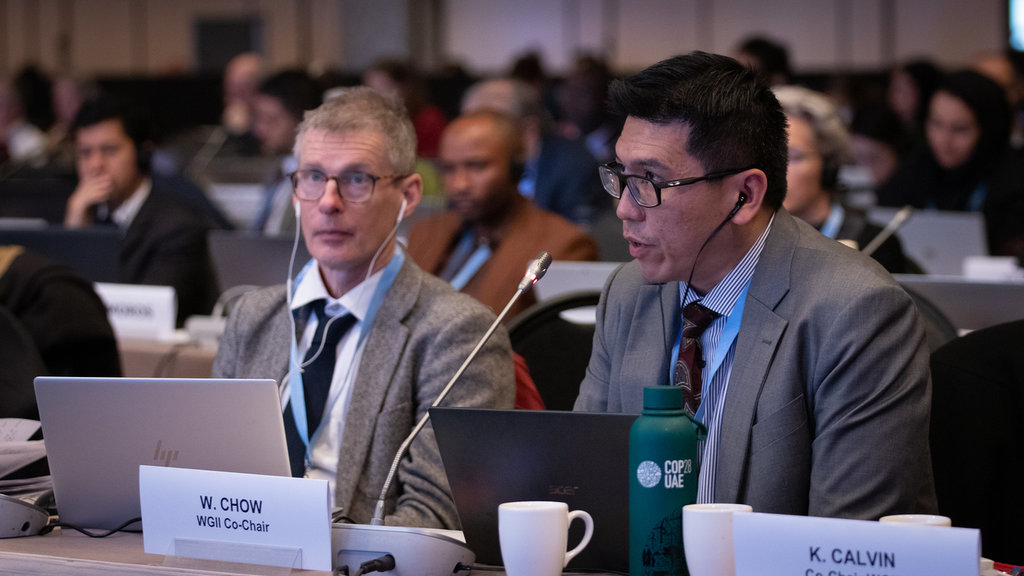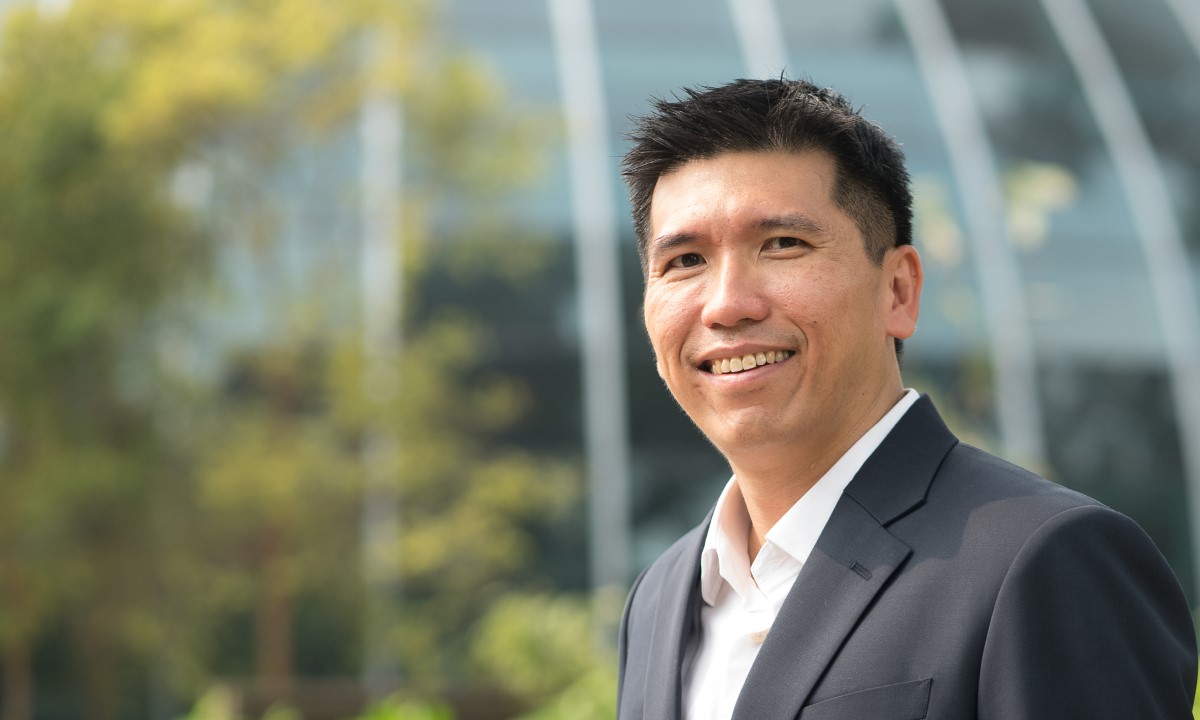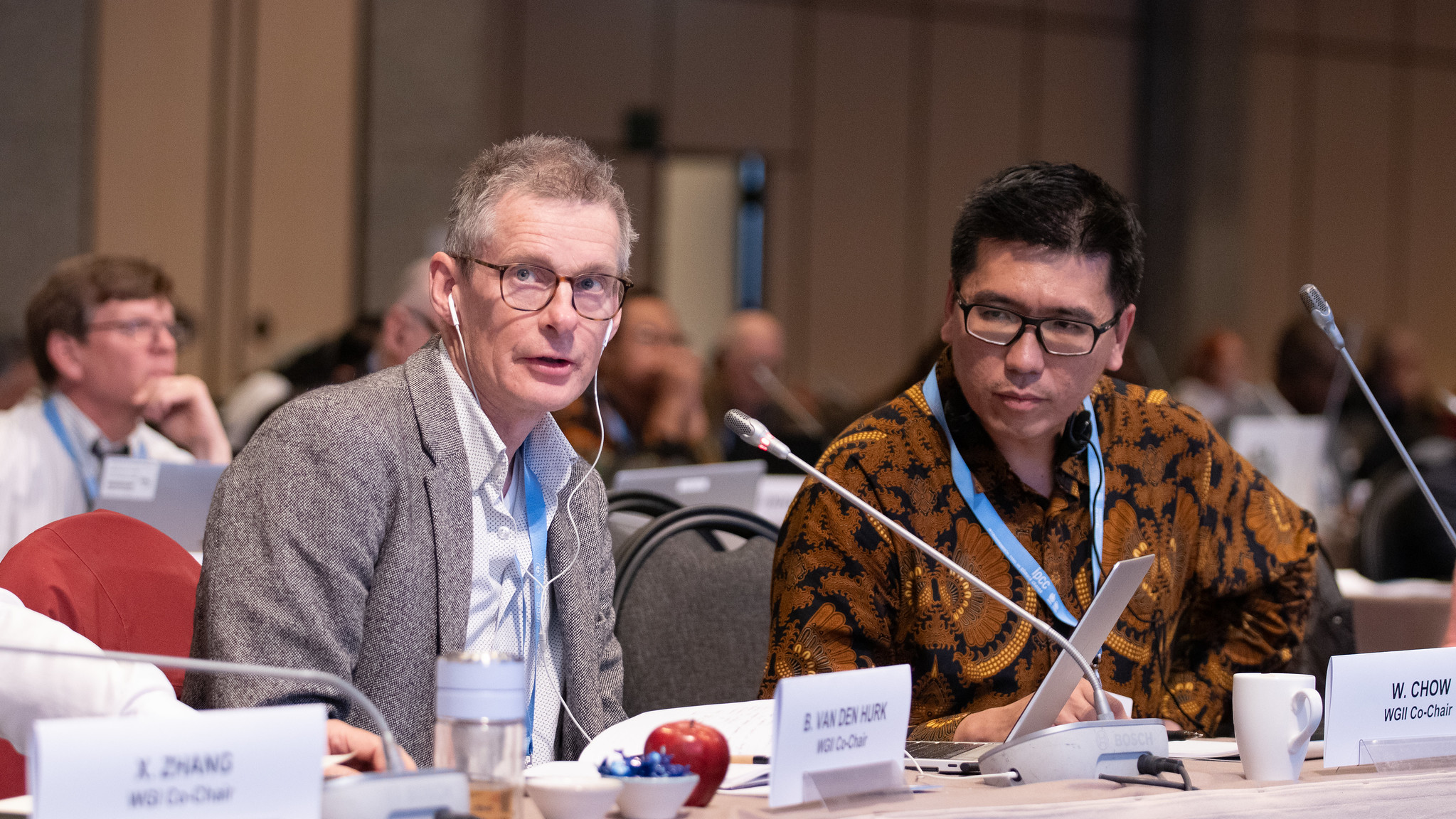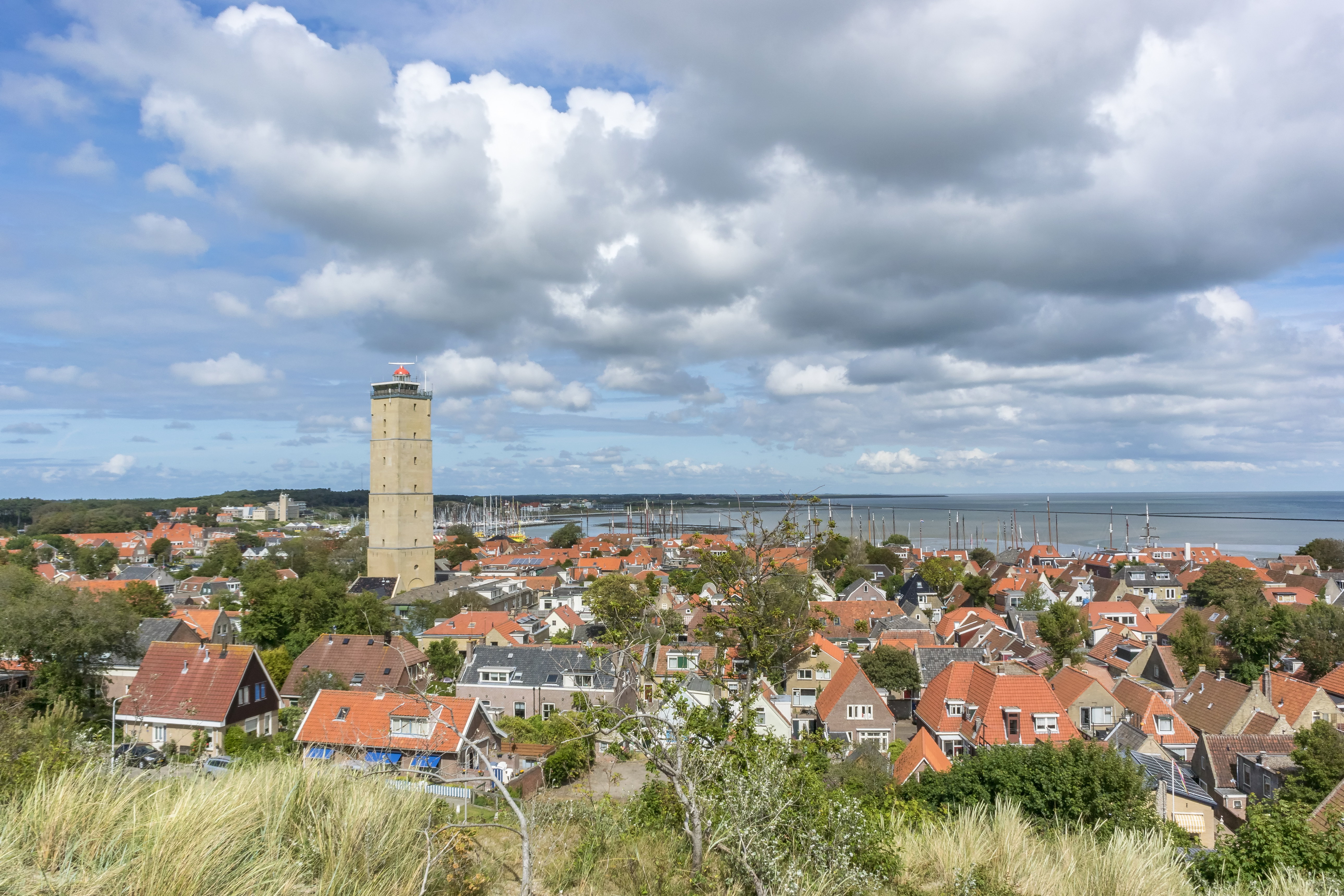Interview with IPCC WGII Co-Chairs
Delivering the world’s most authoritative report on climate adaptation
In July 2023 Bart van den Hurk, Scientific Director at Deltares, and Winston Chow, professor of urban climate at Singapore Management University, were elected co-chairs of the IPCC Working Group II. This group assesses the vulnerability of socio-economic and natural systems to climate change, negative and positive consequences of climate change, and the options for adaptation. Together, they will lead WG II’s contribution to the seventh Assessment Report on Climate Change of the IPCC (The Intergovernmental Panel on Climate Change). Bart and Winston have worked together before, as part of the long-standing cooperation between Deltares and the National University of Singapore (NUS).

Interview with co-chairs
Bart van den Hurk and Winston Chow
How did you become IPCC co-chair?
Question 1
Winston
‘As author in the previous assessment report, I understood and enjoyed the process. A lot of my projects are collaborative, interdisciplinary, and multi-institute. My experience on working on such large projects was key to being nominated. It’s a great honour and becoming co-chair will give me the chance to work with so many fantastic scientists and climate experts around the world.’
Bart
‘Becoming co-chair isn’t a normal vacancy that you can apply for; you need to be nominated by your government. I was incredibly honoured when they nominated me and quickly accepted. My work at Deltares has always been about bringing across the facts and messaging about the impact of climate change, and making sure that we don’t just communicate with other climate scientists but also with the society at large. That’s exactly what Working Group II is responsible for.’

Bart van den Hurk
Bart van den Hurk is an expert in the field of weather and climate information. He is Scientific Director at Deltares and professor of Interactions between climate and societies at VU Amsterdam. Previously, he was a climate scientist at the Royal Netherlands Meteorological Institute (KNMI). He was also a lead author of the 6th IPCC Assessment Report, Working Group I, where he worked on the Interactive Atlas.
‘I’ve always been fascinated by environmental issues, even when I was a child. I remember once asking my father if we’d ever run out of iron. That curiosity has always stayed with me, and so I went on to study environmental sciences in Wageningen.’
What do your appointments mean for Singapore and the Netherlands?
Question 2
Bart
‘The Dutch government has been very supportive. There are all kinds of criteria for the composition of the group of chairs, co-chairs and vice-chairs. There has to be a balance between continents. One of the co-chairs has to be from a developing country, while the other co-chair providing country has to fund the technical support unit. The great thing is we are well funded now, as both the Netherlands and Singapore are providing funding for such a support unit.’
Winston
‘It’s a bit odd that Singapore is regarded as a developing country in this sense; we regard ourselves as a country whose economy is in transition. From my conversations with Singaporean government and business leaders, it is clear that they acknowledge the need for adaptation. Singapore wants to contribute to global climate action, which is why the government backed my nomination with funding. This allows us to take real action, such as outreach events, and to communicate with stakeholders who have been really keen to get in touch with both Bart and myself.’
What does the role of co-chair entail?
Question 3
Winston
‘The IPCC is assigned a team of experts with scientific or relevant climate expertise. Bart and I work with them on the seventh Assessment Report about Climate Change.’
Bart
‘As co-chairs we coach and organise the assessment process. First, we have to make a proposal to the IPCC panel about the type kind of reports we’ll write. We can’t pluck a topic out of thin air; we need to determine where the interest lies and which topics really matter. Then we organise a scoping process with experts.’
Winston Chow
Winston Chow is a professor of urban climate at Singapore Management University, specialising in climate change issues and urban sustainability in Singapore and South-East Asia. He contributed to the sixth IPCC Assessment Report as a scoping expert and as a lead author for urban assessment chapters.
‘My brothers and I used to complain about the tropical heat whilst playing football outside. They kept asking why Singapore is so hot, so one day, as a university undergraduate, I said ‘fine, I’m going to find out’. That’s how I became interested in weather and climate. Now look where we are, 25 years later!’

What does the scoping process look like?
Question 4
Bart
‘It creates an outline and a narrative for the topic; what will the report tell? By scoping, we identify the gaps and the knowledge needs of governments. It also considers the issues that are being discussed by the scientific community. We then invite the scientific community to share their evidence.
For example, one of our reports will focus on cities and climate change. As co-chairs we identify contributors. We need to find the right balance; we don’t just want scientists because the report needs to be accessible to practitioners. That’s why we also invite contributions from government and the private sector.’

It seems to be a complex and demanding process
Question 5
Bart
‘It’s a stringent process. The scope and outline must be approved by the full IPCC panel. We then need to recruit authors which takes time; each chapter has about ten authors, including a lead author. The team then discusses issues such as the status of the scientific literature, areas of cooperation, and where different and new data are required.
As co-chairs, it’s our role to set a very strict timeline. As soon as a draft is produced, we invite the whole world to contribute review comments. These are then processed by the authors.’
Winston
‘This report is the most authoritative, and that’s why such a thorough process is crucial. It may seem convoluted, but it also promotes transparency. In my previous experience, we received thousands of comments, which were meticulously documented and responded to. Anyone can comment. Furthermore, going through such a rigorous process allows you to bring together the collective brain capital of experts. This is reflected in the report, which balances climate science and social science, and is at the same time accessible for people to read. But it’s not just about reading the report – it allows people to act on it.’
What are some of the outcomes you’d like to see during your tenure?
Question 6
Winston
‘When you look at past COP climate conferences, there is a huge and growing number of references to the IPCC Assessment Reports. I expect this will only increase.’
Bart
‘My personal ambition would be to see more uptake from national and regional entities, such as governments and companies, especially in developing countries. Not because they find exactly what they want in the report, but because they find a narrative which they can use.’
Can you give an example?
Question 7
Bart
‘Let’s consider a dilemma. Deltares does a lot of work in Africa, and oil has been discovered in Mozambique. As Deltares we understand the opportunities this discovery may offer a country with huge debt, low income, and informal labour. I hope that in such instances the IPCC provides guidance, so that if the choice is made to exploit oil resources, it is done responsibly – including compensation measures and investment in resilience and long-term sustainability. I want to see the IPCC help find the balance between taking climate action, whilst encouraging countries to develop.’
